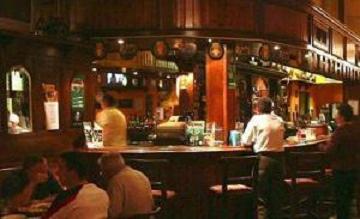Liquor License Transfers

The law governing the application, sale, purchase, renewal and transfer of New Jersey liquor licenses is complex. Its requirements are rigid. Our attorneys can help you navigate this legal maze to close the deal and maximize your profit.
Liquor Licenses
Our attorneys help people and businesses in the application to acquire liquor licenses.
In order to sell, distribute, or manufacture alcohol for sale, an enterprise must first obtain a liquor license. The liquor license is the government’s permission for the business to do so
Liquor licenses are issued by towns in conjunction with the State, normally as a way for the municipality to raise money. They are issued based on the town’s population: one distribution license for every 7500 residents, and one consumption license for every 3000 residents. They are initially granted through a process initiated by an application to the New Jersey Division of Alcoholic Beverage Control (the “State ABC”). (Many of New Jersey’s larger municipalities have local ABC boards; approximately 20 now do, the rest do not. If there is no local ABC board, the municipal government regulates licensees and enforces the ABC law and local regulations directly.)
Types of Liquor Licenses
There are several types of liquor licenses. Class A licenses are for manufacturing alcoholic beverages. Class B licenses for wholesale alcohol sales. Class C licenses are for retail alcohol sales and consumption on premises. Each of these has subtypes. Also, “club licenses” allow non-profit clubs to sell alcohol to their members, and allow consumption on premises.
Transactions
Liquor licenses are a valuable asset. Their cost is normally well into the six figures, and sometimes higher. The reward, however, can often justify the cost.
Our attorneys help people buy and sell liquor licenses, and often the businesses that go with them. We help negotiate the terms of the sale, draft documents protecting our clients’ rights, and assist in the application process.
Objections and Hearings
When an objection is made to an application for transfer, the applicant must be given a hearing to present its case and rebut the objection. As part of our representation of people and businesses buying or selling liquor licenses, we represent them at these hearings, when they are necessary.
BYO Issues
Our lawyers also help restaurants which do not have a liquor license deal with BYO issues. Where not prohibited by local ordinance, a restaurant can often allow patrons to bring their own beer or wine, and even provide glasses and openers. However, they cannot charge for this service, and cannot allow any alcoholic beverages other than beer or wine to be present.
Appeals
Not everyone is approved for a liquor license, whether as the buyer of an initial liquor license or an existing one. All persons or businesses which have or will have an interest in the license must be disclosed. A background check will be conducted both on all applicants/interested persons and the source of their funds.
Decisions denying the purchase, sale or transfer of a liquor license may be appealed. Our attorneys will pursue appeals on behalf of prospective buyers whose applications have been denied.
Contact Us
Please contact us if you need representation in the sale or purchase of a New Jersey liquor license or the application to obtain one, if your application has been denied, or if you simply have questions. You can reach us by e-mail or at (973) 890-0004.

